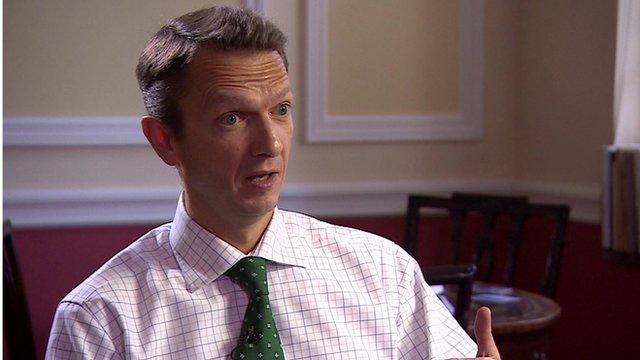Slow economic growth to be 'prolonged', says Bank economist
- Published
Bank of England's Andy Haldane: "People are seeking safety at any price"
Many of the world's major economies face a prolonged period of slow growth, according to the Bank of England's chief economist, Andy Haldane.
He said debt levels for households, companies and governments are still too high in mature economies like the UK's.
The 2008 global financial meltdown was still being felt, he told BBC economics correspondent Robert Peston.
People were discouraged by that crisis, and are scared that another is around the corner, he went on:
"For the foreseeable future, those headwinds to growth will be with us. They'll be holding us back to a degree.
"One interpretation is just that people are scared. People are scarred by the risk of something else going wrong, and are seeking safety, safety almost at any price."
Common problems
All this "will tend to drag growth back a bit", he predicted.
He said many major economies faced common problems that would hold back growth, and would mean that interest rates "in the future may be materially lower than they have been in the past."
Factors such as the longer life spans of people living in western economies, rising inequality, and fears that modern countries are less innovative than previously, would all potentially impact on growth, he added.
Last month, Mr Haldane said interest rates could remain low for longer than many economists expected, to avoid long-term economic stagnation.
He was downbeat over prospects for the UK economy because of weaker global growth, low wage growth and financial and political risks.
- Published24 November 2014
- Published24 November 2014
